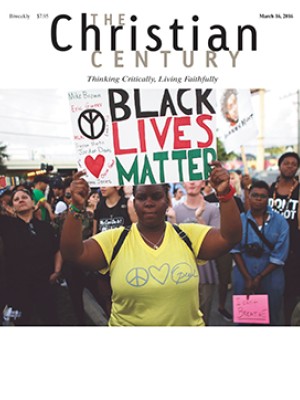China imprisons pastors of prominent churches as crackdown goes on
(The Christian Science Monitor) Two prominent Chinese Protestant pastors were arrested as part of what appears to be the toughest crackdown on civil society since Mao Zedong’s Cultural Revolution of the 1960s.
Gu Yuese, head of China’s largest evangelical congregation, the Chongyi Church in Hangzhou, and his wife, Zhou Lianmei, a Bible teacher, were detained in late January and held incommunicado. Zhou was later released, according to China Aid, a religious freedom advocacy organization.
Read our latest issue or browse back issues.
Days later, Li Guanzhong, who like Gu is a standing committee member of the national council of official Protestant churches, and his wife, Zhang Shuzhen, of Puyang Christian Church, were detained under criminal investigation.
“Soon, a rare freezing cold will befall Hangzhou,” Gu and Zhou wrote in a message to their congregation, released by China Aid. “Chongyi Church is also experiencing unprecedented, chilling trials. . . . Increasingly, we feel God’s good intentions in this storm. It will refine every impurity in our ministry team to the greatest extent.”
Gu, also known as Joseph Gu, has had a reputation as a friendly and often conciliatory face for the Protestant church in China as he has led China’s first megachurch, with some 10,000 people. Moves to discipline Gu began to take shape, according to members of his church, after he publicly opposed a new law last spring that called for tearing down church crosses in Zhejiang Province on China’s eastern coast.
Gu and Li are among several Protestant pastors who have been held under arbitrary detention since last July, the apogee of the state-run cross demolition campaign. One pastor was released in February after five months in custody.
Authorities have forcibly removed nearly 1,700 crosses from atop churches since 2014, mainly targeting official Protestant churches in the Three-Self church organization, which is sanctioned by the state.
While charges against the detained church leaders have ranged from embezzlement to bribery to fomenting instability, one thing all detainees have in common is their public opposition to the anti-cross campaign. Li fiercely opposed efforts to remove the cross from his church in the city of Jinhua and tried to block efforts by security officials to put a Chinese flag atop his church.
All of the detainees are part of the official Protestant organization, whose members generally see themselves as patriotic and rule-abiding, in contrast to the house church movement that continues to thrive, mostly underground, in China and where worship is freer from state oversight.
As Christianity has grown swiftly in China, it has caused consternation among state authorities, who see it as legitimating an authority and loyalty outside of the party.
The U.S. State Department in early February published a statement calling for the release of Gu and others, including a lawyer who has taken evangelical cases, Zhang Kai. Kai disappeared last summer shortly before a scheduled meeting with the U.S. envoy for religious freedom, David Saperstein, who was in China at the invitation of the Xi Jinping government.
Carsten Vala, a scholar of Christianity in China at Loyola University Maryland, said it appears that civil space in China outside of the party is shrinking.
“What is most worrying is that the crackdown,” Vala said, “is now even reaching into the circles of officially registered religious and social organizations.” —The Christian Science Monitor; added sources
This article was edited on March 1, 2016.





